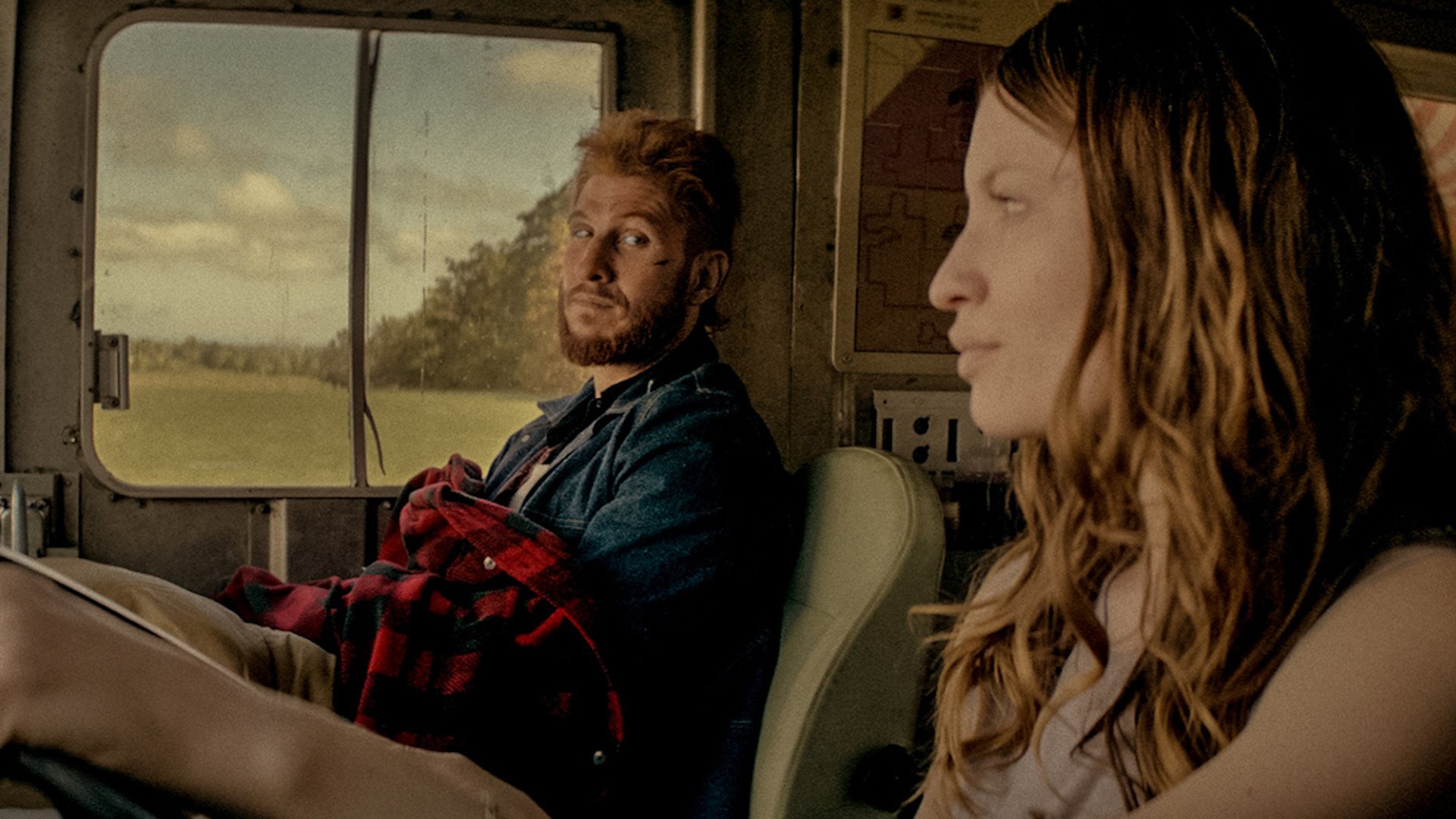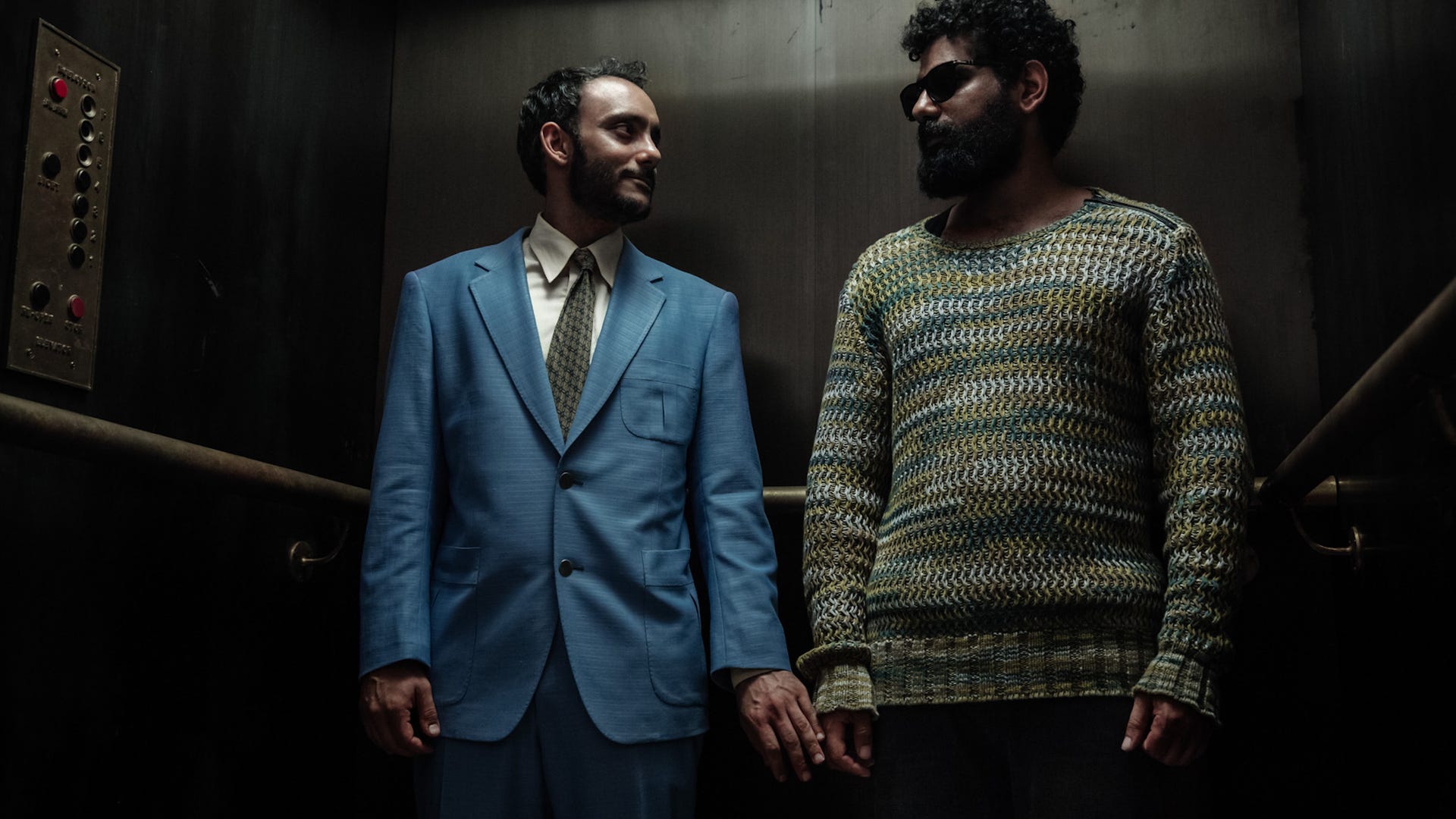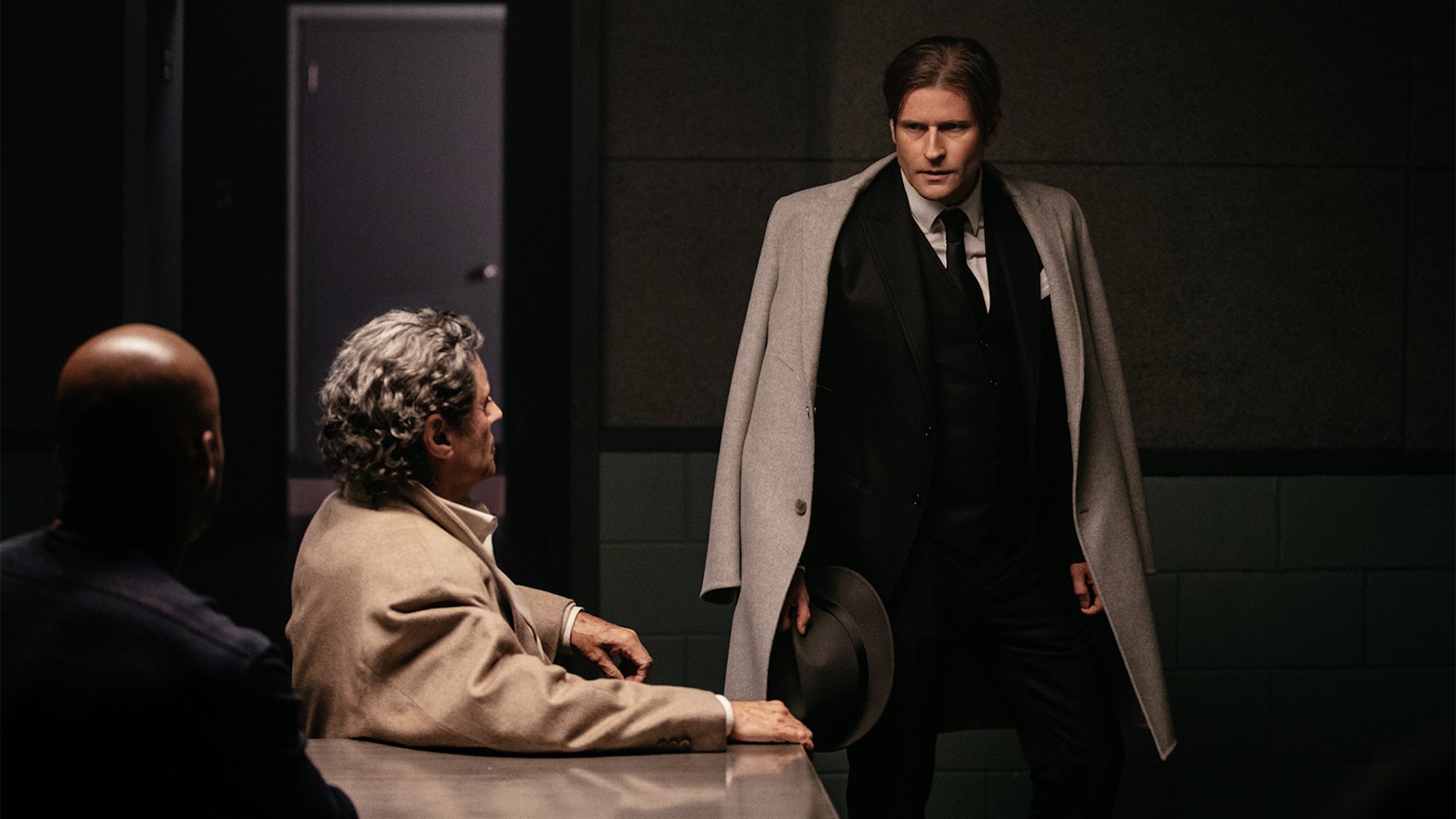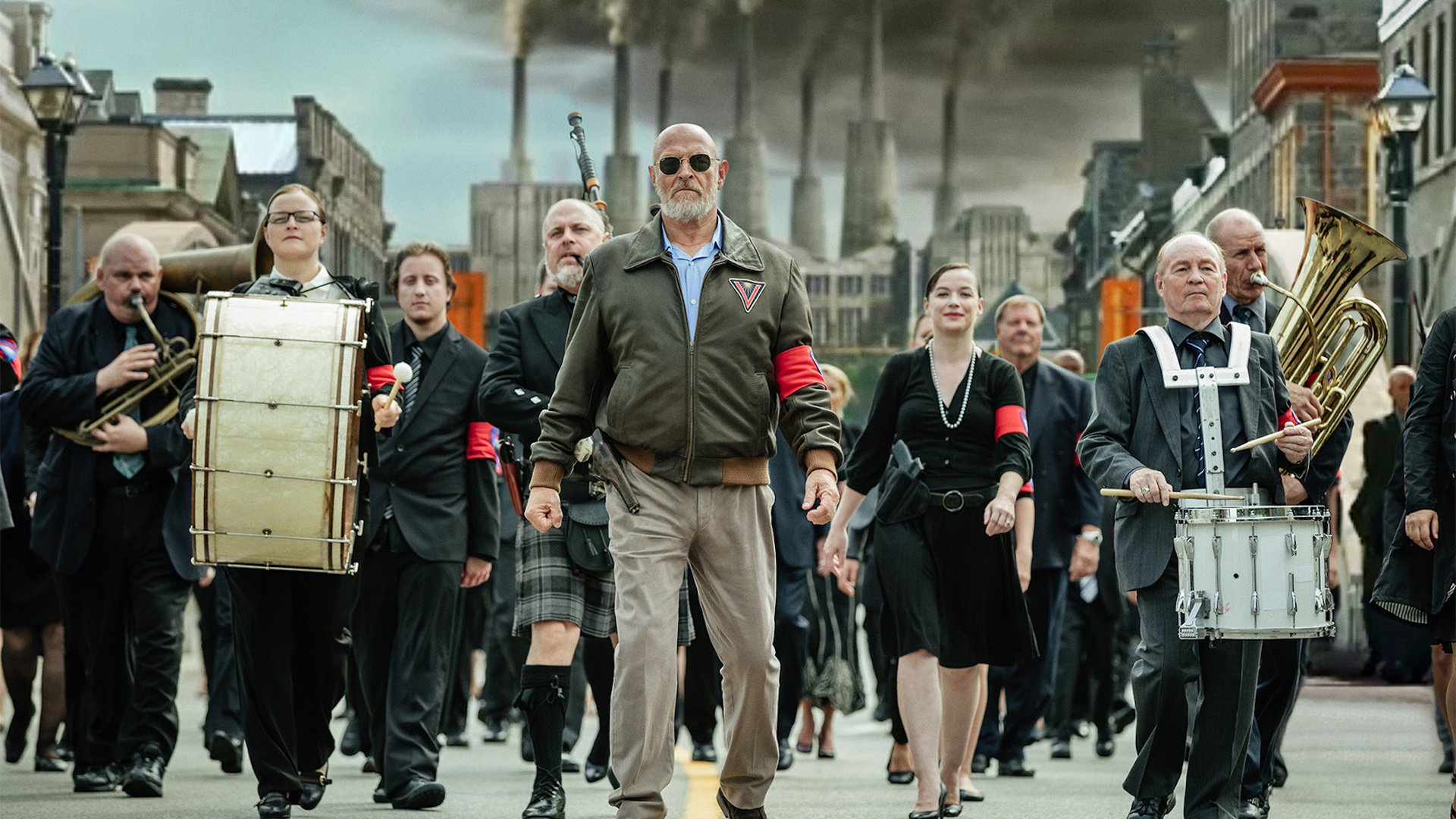Join or Sign In
Sign in to customize your TV listings
By joining TV Guide, you agree to our Terms of Use and acknowledge the data practices in our Privacy Policy.
American Gods: Was Season 1 Better Than the Book?
Is Starz's adaptation worthy of praise?
Before American Gods premiered, fans of Neil Gaiman's novel wondered how much of the series would follow the source material and how much would deviate from the words on the page. After all, co-showrunner Bryan Fuller's former series, Hannibal, was only a loose adaptation of Thomas Harris' novels, on which that show was based. Now that American Gods has wrapped its first season (it has already been renewed for Season 2), the answer is that the show is a mix of old and new... For better, and sometimes, for worse.
So, let's break it down.
The role of female characters within the narrative:

Pablo Schreiber and Emily Browning, American Gods
Starz
The transition from page to screen capitalized on the opportunity to flesh out the world of American Gods beyond Shadow Moon's (Ricky Whittle) narrow perspective, elevating various characters and aspects of the story above what appears on the page. The expanded roles for women -- most notably Emily Browning's Laura Moon -- added real depth to characters who were formerly one-dimensional, despite being integral to the plot. By diving into Laura's backstory in the series' fourth episode and continuing to explore her post-life existence in the present, American Gods gave voice to a woman previously only seen through her husband's eyes. Where she was once vilified for her actions, this version of Laura became a flesh-and-bone, sympathetic heroine worthy of the screentime afforded her.
The women of American Gods are more than just idols to worship
But Laura wasn't the only female character to benefit from an expanded role on screen. The goddess Bilquis (Yetide Badaki) -- who was featured in only two short, if memorable scenes, within the novel -- and Laura's former best friend Audrey (Betty Gilpin), who was hardly more than a screech in the wind before Fuller and Green fleshed her out, also became sturdier representations of women. Bilquis' story, in particular, highlighted the real life shortcomings of our society, wherein women regularly take a backseat to their male counterparts and are treated as little more than sexual objects to be used for gratification. Through her arc, the series put women in a position of sexual power in a way that's rarely seen on TV.
Verdict: Better in the TV show
By putting complex women in the spotlight and committing to telling their stories, American Gods allows women to have a voice and assert their power beyond the limits traditionally assigned to them in pop culture. And when women struggle to be seen and heard and treated as equals outside of fictional television, it cannot be understated just how much this type of representation matters.
The effectiveness of Shadow and Wednesday's story as a spine for the series:

Ricky Whittle and Ian McShane, American Gods
Jan Thijs / Starz
Conversely, the well-defined female characters with distinct personalities tend to steal the spotlight from the series' main protagonists, which threatens to strain the backbone of the series. Laura spent the season attempting to find and reunite with Shadow, pairing her with an unruly leprechaun named Mad Sweeney (Pablo Schreiber); and their adventure easily eclipsed that of Shadow and Mr. Wednesday (Ian McShane).
American Gods wants you to think differently about religion
It is not the fault of McShane, who has turns gruffness into an art form and can effectively deliver a one-sided conversation with a raven. It is also not the fault of Whittle, who gives a solid performance as Shadow and breathes more humor and life into the man than ever appeared on the page.
The sad truth is, Shadow is not a terribly interesting protagonist, especially at the outset. As the audience surrogate, he's reactionary, a blank canvas made more interesting by the colorful men and women who surround him. In comparison, there's an immediate and palpable energy that exists between the undead but determined Laura and the demanding and foolish Sweeney; and once the two hardheaded personalities collide, a spark ignites and casts the rest of the show's world into, for lack of a better word, shadow.
Verdict: Better in the book
The world and character building that occurs onscreen is a necessary modification for a well-rounded TV series, and we will never argue for Laura Moon or Mad Sweeney to take a seat in order to give off the appearance of a stronger arc for Shadow or Wednesday. But the duo's onscreen presence is not as strong as it could be, and so the book takes this round.
The "Coming to America" vignettes as world-building tools:

Omid Abtahi and Mousa Kraish, American Gods
Jan Thijs / Starz
American Gods frequently recreates scenes word for word from the novel in a concentrated effort from Fuller and co-showrunner Michael Green to recreate the unique experience of reading the novel. Many memorable moments, including some of the "Coming to America" vignettes that appear each week and showcase different gods or religions, are recreated with precision and style in a way that welcomes viewers into a world that is as complicated as it is extraordinary.
These scenes -- which are usually placed at the beginning of each episode, though not always -- help not only to introduce viewers to a number of characters who may potentially play a larger role within the ongoing story of American Gods, but also help to shape its world by extending it beyond Shadow and Wednesday, or Laura and Mad Sweeney.
American Gods bosses break down that intense gay sex scene (and all those penises)
In the novel, the "Coming to America" stories are more easily inserted, but it's equally easy to skip them altogether or forget about them as the story of Shadow progresses. This is due to the fact that sometimes the supplemental information offered is never directly spoken of again. That's not the case in the TV show, with previously featured characters like Salim (Omid Abtahi) eventually teaming up with Laura and Mad Sweeney as he searches for the Jinn (Mousa Kraish) he met in New York during one of these sequences.
Verdict: Better in the TV show
Maybe it's the performances, maybe it's the way the sequences are more overtly tied into the overall theme and story of American Gods, but the "Coming to America" stories work better onscreen than on the page.
The New Gods as believable and substantial Big Bads:

Ricky Whittle, Ian McShane and Crispin Glover, American Gods
Jan Thijs / Starz
In order to create narrative tension within the episodic television format, aspects of the novel's timeline have been rearranged and character introductions have been reworked throughout the first season. This makes sense as the world of American Gods must grow outside of Shadow's world view if it wants to sustain itself. It is imperative, for instance, that as the de facto leader of the new gods, Mr. World (Crispin Glover) -- who is nothing more than a shadowy voice on the telephone for much of the novel -- must arrive and have a physical presence much earlier in the television adaptation so as to feel like a real antagonist.
Other characters, including Media (Gillian Anderson) also appear more frequently than their book counterparts in order to better emphasize the threat of a brewing war between Wednesday and the new gods.
Verdict: Draw
Different mediums require different structures, and what works in a novel does not always work for television. To declare that one method of storytelling is superior to another in this instance would be to discount how worlds are built and how information is disseminated based on narrative perspective.
The social commentary component:

Corbin Bernsen, American Gods
Jan Thijs / Starz
American Gods is pretty overtly a political story about immigrants and cultural preservation, but when it was written and published in 2001, just a few months before 9/11, the subject wasn't seen as controversial the way it is interpreted today. The political landscape of the U.S. has changed since 2001, and in the wake of Donald Trump campaigning on anti-immigrant sentiment -- and attempting to invoke a Muslim ban early into his presidency -- the political relevance of American Gods has only grown.
American Gods renewed for Season 2
In addressing the racism still present within American society -- and being fed by propaganda -- the African trickster god Anansi (Orlando Jones) opens the the show's second episode with a powerful monologue that forces viewers to confront just how little progress has been made in America's relatively short history. "You arrive in America, land of opportunity, milk and honey, and guess what -- you all get to be slaves, split up, sold off and worked to death," he tells a ship full of Africans bound for the New World. "A hundred years after you get free, you're still getting ... shot at by police." Anansi is unflinching in his critique, and the knowledge that he's a storyteller who manipulates people makes the truth of the situation -- for we have witnessed the events of the past -- all the more unsettling.
In order to not just update the novel's story to reflect the current climate but add to it, Fuller and Green also created a character who was not in the novel: Vulcan, the Roman god of fire, blacksmithing and the forge. The addition of Vulcan (Corbin Bernsen) speaks specifically to the deeply unsettling era we currently live in. An old god, Vulcan has founded a town and a bullet factory that allows him to retain his power -- the fire of old has been replaced with literal firepower. The depiction of a small Southern town run by Vulcan, populated entirely by caucasian men and women, and littered with fascist imagery speaks to the ongoing issues of modern American society.
But the series also expanded upon the themes present in the novel during adaptation. The story is built upon the idea of worship and the power derived from it, and so this opens up a dialogue about religion and what it is we think we worship in an era where, culturally, this topic has fallen out of fashion or been diluted. In the season finale, we meet a number of different Jesuses, who have co-opted Easter's (Kristin Chenoweth) day even as she attempts to lean into the commercialization of the holiday to remain relevant. Meanwhile, ostensible villains Media and Technical Boy are a nuisance for Wednesday, but they are powerfully present in American society, and speak to changing habits.
Verdict: Better in the TV show
Though it is a little more difficult to compare the novel's social commentary to that of the TV show when our current political climate is much more volatile, the truth is the series does a much better job of shining a spotlight on America's current state than the novel did in 2001 (though to be fair, Gaiman may have been going for mythical resonance than modern resonance).
Final Score: The TV show
Although our incredibly scientific study gives the edge to the TV series, it's important to point out there are limits to the novel that are largely eliminated by a jump to TV, including expanding a limited point of view and fleshing out an entire cast of characters. The series' ability to dig into relevant social issues is also somewhat difficult to measure against a novel that was written prior to 9/11, a crucial turning point for issues of immigration/Americans' own view of America.
However, the series' first season was not without its struggles. Wildly inconsistent, as characters were introduced and storylines took prominence or were moved to the back burner, the eight-episode first season was a bit of a messy debut for American Gods. Building a world as complex and bizarre as the one Gaiman first created in the pages of his beloved novel is a difficult task, and one that takes time. But now that some of the initial groundwork is out of the way -- and now that Shadow knows what exactly he has agreed to -- maybe the second season will feel more stable as we dig into the real meat of the story.
